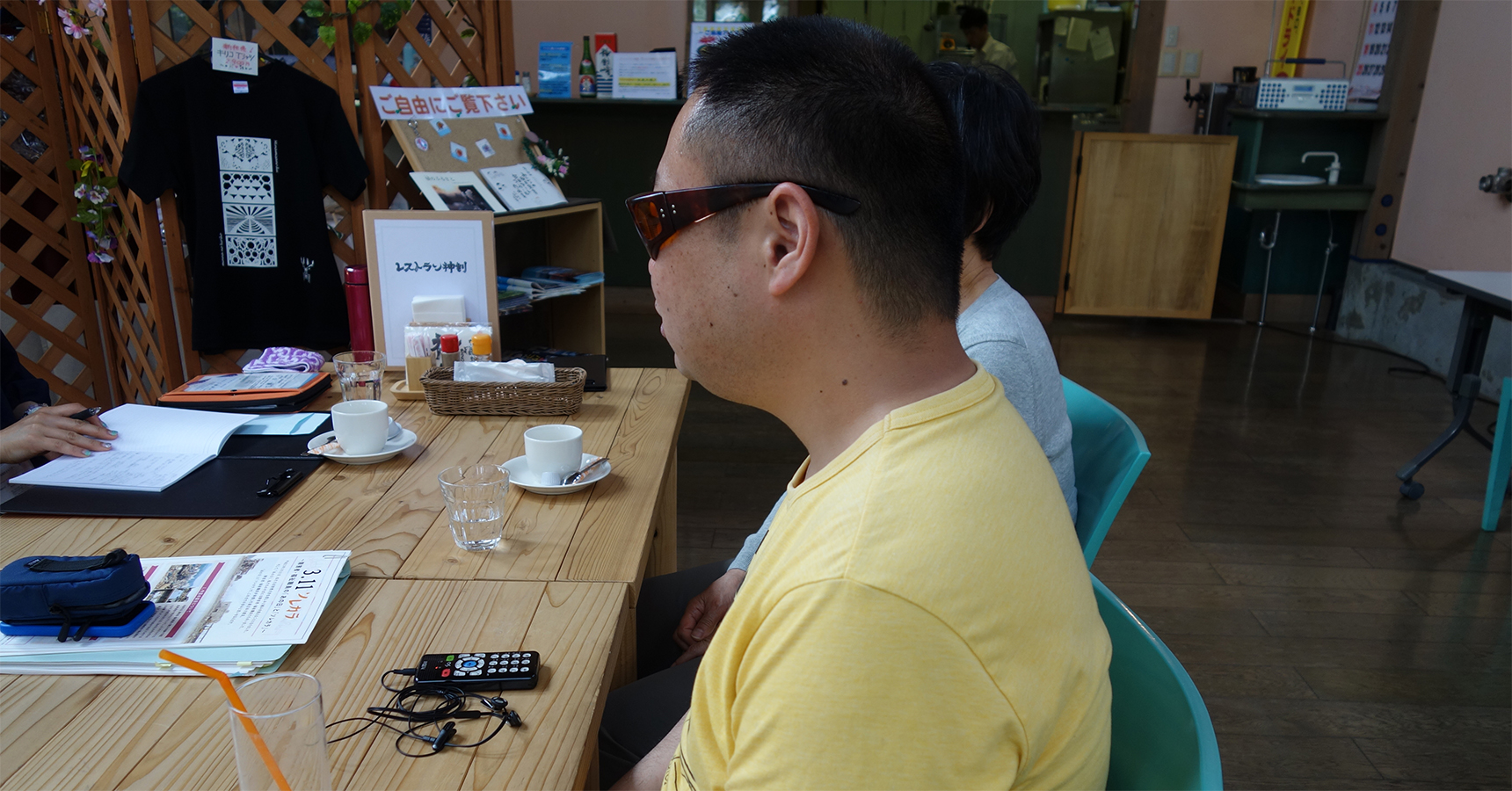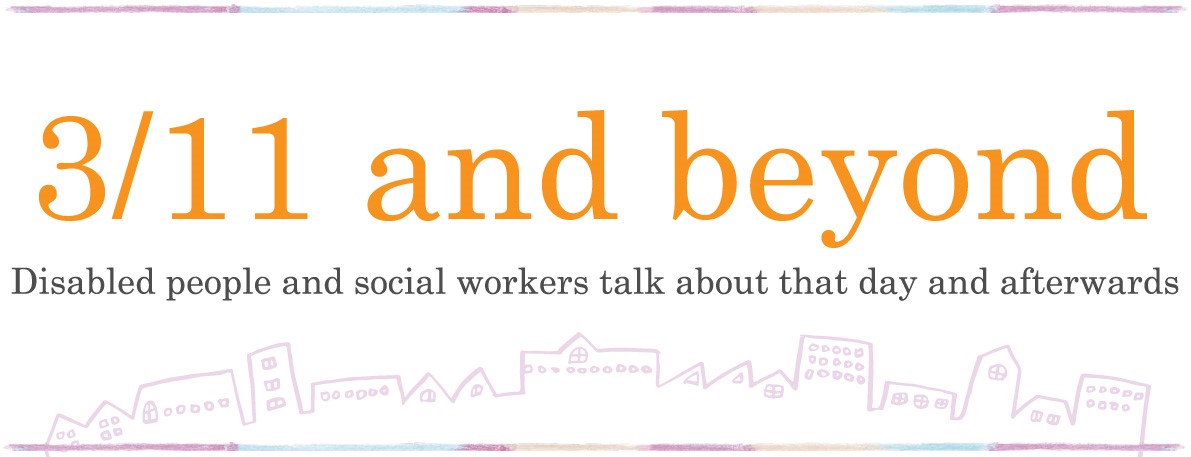 Story: Mr. Kenichi Oyama (man/ in his 30s at the time/ deaf-blind [visually and hearing impaired])
Story: Mr. Kenichi Oyama (man/ in his 30s at the time/ deaf-blind [visually and hearing impaired])Problems at the shelter
 Story: Mr. Kenichi Oyama (man/ in his 30s at the time/ deaf-blind [visually and hearing impaired])
Story: Mr. Kenichi Oyama (man/ in his 30s at the time/ deaf-blind [visually and hearing impaired])Did you have any problems or troubles in this shelter full of so many people?
At that time I was just focusing on getting through each moment, so maybe I wasn’t really aware of it, but various things did happen that were stressful. The biggest problem was the toilet. I couldn’t use the toilet by myself. I couldn’t see, and I couldn’t get around on my own. Sometimes I held it from 8 in the morning until my family came back around 5 in the evening. Of course, even though I couldn’t see, eventually I did manage to find routes I could take by myself, started using the outhouse by the house near the shelter, and got used to living in the shelter and learned to go to the toilet on my own, but I think it took around a month.
Did you have any other problems?
Let’s see. It was also difficult having no private space. Always having someone looking at me. Although of course there were also people I knew there and they were taking care of me, it was just mentally exhausting. I was grateful to the people who were looking out for me, but also resented being constantly watched. So my feelings were a bit complicated. So sometimes when I went to use the outhouse by the house down the mountain, I felt this indescribable sense of liberation. It was like the outhouse was my only private space, so sometimes I went there even though I didn’t need to go.
So you needed someplace to be alone.
I’ve also heard from other visually impaired people that private space is especially important to them. When you can’t see, you don’t know what’s going on. But when you’re in a private room, you can relax. I mean, I can’t really be alone, because I need other people’s knowledge and help. That’s kind of frustrating to me. I have complicated feelings about it. Of course, people are helping me, taking care of me, and looking out for me. I’m the one receiving their help, and I’m nothing but grateful for that. But aside from that, it really is hard not having privacy. There was also one more problem I had.
What was that?
The amount of food. When the Self-Defense Force started handing out bento boxes as relief supplies, the elderly people would just try hard to eat up their portion even it was sometimes too much for them. They couldn’t throw away what they’d received in this kind of situation. Some people did force themselves to eat everything. It was a lot even for me. But I thought, I have to eat everything or it will be thrown away, and it’s easier to clean up if I eat it all anyway. After a while, I heard one old lady who was trying to eat all her food mumble, “It’s too much.” Then I realized elderly people just aren’t capable of eating that much. So I said, “Don’t worry about leaving some of it. It’s not good for you to eat it all. You’re not doing anything wrong.” Then from the next meal she started leaving some of her food. At first I think everyone felt pressured because they felt they had to be grateful for what they’d received and treat it with respect. It might seem outrageous for me to say this even though everyone was just trying to help us, but people normally have a certain amount they can eat, and when they can’t regulate the amount, it’s a problem. It something you don’t even think about in ordinary life.
When you said there was a problem with food, I thought you were going to say there wasn’t enough, that there was far too little and you had to figure out how to split it up. But it was the complete opposite. So everyone has a certain amount they’re capable of eating.
Even things we normally enjoy eating like rice balls from the convenience store or supermarket gradually become hard to get down after weeks in a shelter. That was a unique shelter experience.
In those circumstances, I remember that the normal, everyday foods like miso soup and boiled vegetables the women made with the supplies that came to the shelter were really delicious.



